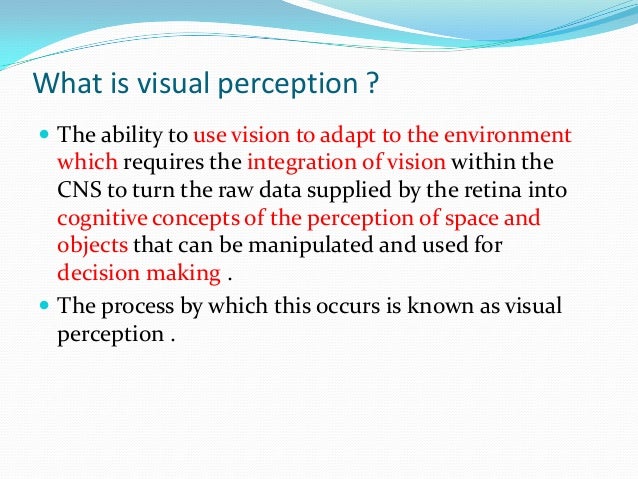
Our results challenge common conceptions about the determinants of human behaviour but can be explained by well-established theoretical frameworks detailing the link between perception and action. Source localization analysis implicates activation within medial frontal cortices in the effect of how irrelevant non-veridical perceptions modulate behaviour. ERP analysis suggests that even though the examined peculiarities and experimental variations are perceptual in nature, it is not early-stage perceptual processes, but rather higher-order executive control processes linking perceptions to the appropriate motor response underlying this effect. Using electroencephalography, we determine whether early-stage perceptual processes (reflected by P1 and N1 event-related potential (ERP) components), or late-stage-integration processes (reflected by N2 component), underlie the effects of non-veridical perceptions on action control.

non-veridical) but still non-pathological perceptions affect actions in healthy humans. = 19 grapheme-colour synaesthetes), how objectively non-existent (i.e. Here, we demonstrate, using synaesthesia as a model condition (in Exceptions are generally only made for mental health disorders associated with delusions and hallucinations where behaviour may be triggered by the experience of objectively non-existent percepts. We continually perform actions that are driven by our perception and it is a commonly held view that only objectively perceived changes within the ‘real’ world affect behaviour.

Our results challenge assumptions about the determinants of healthy human behaviour but can be embedded within existing frameworks detailing perception action interactions. Rather, high-order processes linking perceptions and motor control in medial frontal cortices reflect the underlying mechanism how irrelevant non-veridical perceptions modulate behaviour. Applying electrophysiological (EEG) methods, we show that although these examined peculiarities are perceptual in nature, not primarily perceptual processes underlie the effects of irrelevant non-veridical perceptions on actions. By non-veridical we refer to stimulus dimensions that are only subjectively perceived to be there. Using synaesthesia as a model condition, we show that even in healthy populations irrelevant non-veridical precepts exert an effect on action. Exceptions are usually only made for clinical conditions associated with hallucinations, where objectively non-existent percepts can influence behavior. She concludes by discussing the controversy that continues to swirl around this phenomenon.AbstractWe continually perform actions driven by our perception and it is commonly held that only objectively perceived changes within the ‘real’ world affect behaviour. She then reviews the hospital studies that have attempted to capture veridical perception under scientifically controlled conditions, all of which have been unsuccessful so far. Holden analyzes in great detail a few of the most interesting cases. The startling result is that the vast majority of these cases were shown to be accurate. She surveys over 100 instances of possible veridical perception in the research literature. Jan Holden from the University of North Texas reviews decades of research into this phenomenon.

Because this phenomenon should be an impossibility given our current understanding of how the brain functions, it has aroused intense controversy and interest. One of the most fascinating aspects of NDEs is "veridical perception," in which the near-death experiencer reports seeing or hearing events during their NDEs that, given the condition and/or position of their physical bodies, should have been impossible to perceive but are nevertheless corroborated as accurate.


 0 kommentar(er)
0 kommentar(er)
